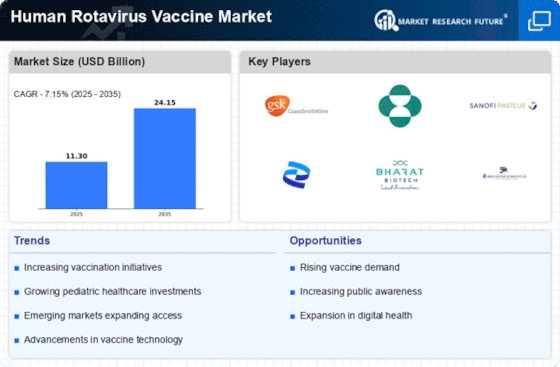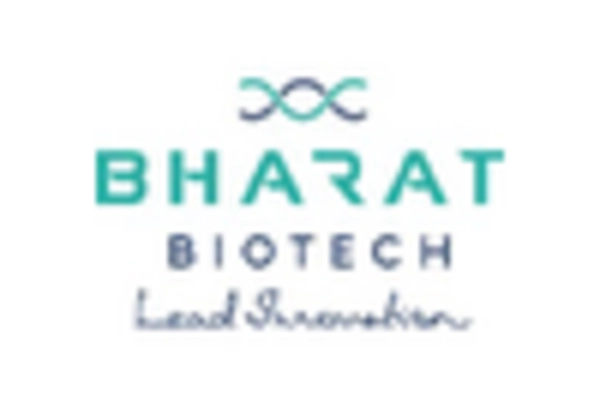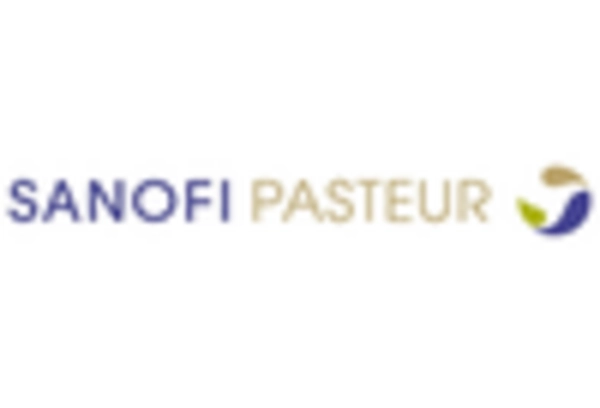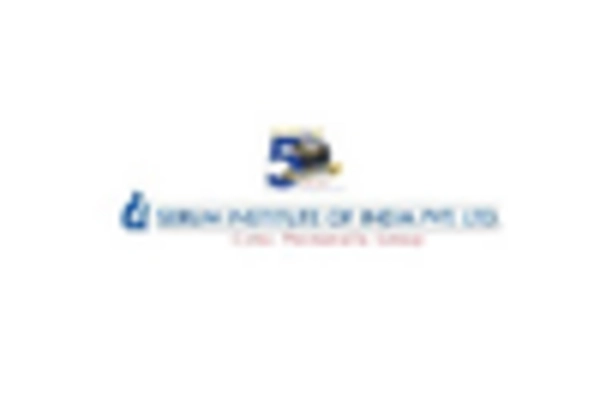Rising Healthcare Expenditure
Rising healthcare expenditure is a significant factor influencing the Human Rotavirus Vaccine Market. As countries invest more in healthcare infrastructure and services, the allocation of funds towards vaccination programs has increased. This trend is particularly evident in developing nations, where improving child health is a priority. Enhanced healthcare budgets allow for the procurement of vaccines, training of healthcare personnel, and establishment of distribution networks. According to recent data, healthcare spending in many regions has seen a steady increase, which correlates with improved vaccination coverage. The commitment to enhancing public health through vaccination is likely to drive the Human Rotavirus Vaccine Market forward, as more resources become available for the prevention of rotavirus infections.
Increased Public Awareness and Education
Public awareness and education regarding the benefits of vaccination are pivotal in driving the Human Rotavirus Vaccine Market. Campaigns aimed at informing parents about the dangers of rotavirus and the efficacy of vaccines have proven effective in increasing vaccination rates. Health organizations and non-profits are actively engaged in disseminating information that highlights the importance of immunization in preventing rotavirus-related illnesses. This growing awareness is likely to lead to higher demand for vaccines, as parents become more informed about the health risks associated with rotavirus. Additionally, educational initiatives that emphasize the long-term benefits of vaccination for community health may further enhance the Human Rotavirus Vaccine Market. As public perception shifts towards valuing preventive healthcare, the market could experience significant growth.
Rising Incidence of Rotavirus Infections
The increasing incidence of rotavirus infections among children appears to be a primary driver for the Human Rotavirus Vaccine Market. According to health organizations, rotavirus is responsible for a significant proportion of severe diarrhea cases in infants and young children, leading to hospitalizations and fatalities. This alarming trend has prompted governments and health authorities to prioritize vaccination programs, thereby enhancing the demand for rotavirus vaccines. The World Health Organization has reported that rotavirus causes approximately 215,000 deaths annually in children under five years of age. Consequently, the heightened awareness of rotavirus's impact on child health is likely to stimulate growth in the Human Rotavirus Vaccine Market, as more countries adopt vaccination strategies to combat this preventable disease.
Government Vaccination Programs and Policies
Government-led vaccination programs and policies are crucial in shaping the Human Rotavirus Vaccine Market. Many countries have integrated rotavirus vaccines into their national immunization schedules, which has led to increased accessibility and uptake among target populations. For instance, nations that have implemented routine immunization against rotavirus have observed a marked decline in hospitalization rates due to severe diarrhea. The commitment of governments to allocate resources for vaccine procurement and distribution is indicative of the importance placed on child health. Furthermore, international health organizations often provide funding and support for these initiatives, which further bolsters the Human Rotavirus Vaccine Market. As more countries recognize the economic and health benefits of vaccination, the market is poised for continued expansion.
Technological Innovations in Vaccine Development
Technological innovations in vaccine development are transforming the Human Rotavirus Vaccine Market. Advances in biotechnology and research methodologies have led to the creation of more effective and safer vaccines. For instance, the development of live attenuated vaccines has shown promising results in eliciting strong immune responses with fewer side effects. Furthermore, ongoing research into new formulations and delivery methods may enhance vaccine efficacy and accessibility. The introduction of combination vaccines that protect against multiple pathogens, including rotavirus, could also streamline immunization schedules, making it easier for healthcare providers to administer vaccines. As these innovations continue to emerge, they are likely to attract investment and interest in the Human Rotavirus Vaccine Market, potentially leading to increased market penetration and improved health outcomes.
















